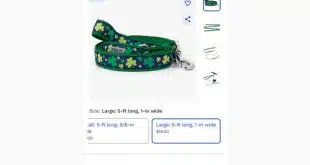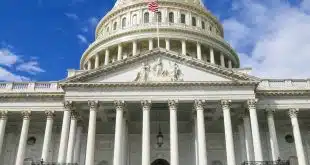PayPal’s boss made a declaration Wednesday afternoon that may have been as much a warning to incumbent merchant acquirers as it was a promise to storefront merchants. Referring to PayPal’s new transaction pricing schedule, expected to go into effect Aug. 2, chief executive Dan Schulman made it clear PayPal will be playing for all the marbles.
“We’re going to be very aggressive about moving into in-store [acquiring],” Schulman told stock analysts during PayPal’s second-quarter earnings call. “If a merchant does all of its business with us, they can see their overall cost go down. We’re going after that.”
PayPal made headlines last month when it announced it planned a dramatic increase in its online rate to 3.49% plus 49 cents per transaction from its current standard toll of 2.9% plus 30 cents—pricing that hadn’t changed in 20 years. But along with this hefty increase, the San Jose, Calif.-based payments giant also said it will reduce its in-store rate to 2.59% plus 49 cents.

The new pricing follows PayPal’s launch last year of new technology to ease and speed up physical-world transactions, including QR codes. On Wednesday, Schulman said some 1.3 million merchants are now processing the codes. “Every 20 seconds, a new merchant signs up to accept our QR codes,” he added.
Now, he sees an opportunity to become merchants’ exclusive payments provider. “2.59% is going to allow us to compete aggressively for all of a merchant’s processing,” he told the analysts on the call, though he did not offer any projections of volume or store increases. The company now processes all or some transactions for 32 million merchants worldwide, it announced Wednesday though it did not break out brick-and-mortar from online merchants, where PayPal has traditionally found its business.
At the same time, PayPal is launching its Zettle point-of-sale technology in the U.S., devices that until now have been deployed in Europe. With the U.S. launch, announced earlier this month, PayPal is selling the Zettle card reader for $29, with additional readers going for $79. Zettle transactions carry a US. rate of 2.29% plus 9 cents. The rate for QR code transactions on either PayPal or Venmo is 1.9% plus a dime. PayPal paid $2.2 billion in 2018 to buy Stockholm-based Zettle, which was then known as iZettle.
In other updates, Schulman told analysts on the call that coding has been completed on a revamp of PayPal’s digital wallet. The new Super App, as the company calls it, will include a range of financial tools not available before, including a high-yield savings account, cryptocurrency capabilities, a bill-pay feature with more available billers and aggregators, and “enhanced” messaging. “This is the first change to the app we’ve done since I’ve been here,” said Schulman, who in 2014 joined PayPal from American Express Co.
If there is a shadow visible across PayPal, Schulman said, it’s being cast by eBay, the online marketplace that owned PayPal until 2015. EBay has for the last year been introducing a “managed payments” platform that relies on processing from a number of providers, of which PayPal is just one. But PayPal still controls about 60% of eBay’s checkout volume, Schulman estimated, even as its share of PayPal’s revenue has dropped from 26% in 2015 to about 3% now.
The worst effects of eBay’s defection will be over by the end of the third quarter, Schulman told the analysts, but for the year PayPal expects the loss of eBay’s business to shave about $1.4 billion off of the company’s projected revenue growth. “This is a timing issue,” he said. “The sooner eBay splits, the better.”
All in all, PayPal enjoyed a strong quarter. Active accounts were up 16% year-over-year to 403 million, a number that includes those 32 million merchants. Payment volume totaled $311 billion, up 40% against a year-ago quarter that saw the first full brunt of the pandemic. Revenue came to $6.24 billion, a 19% increase.




